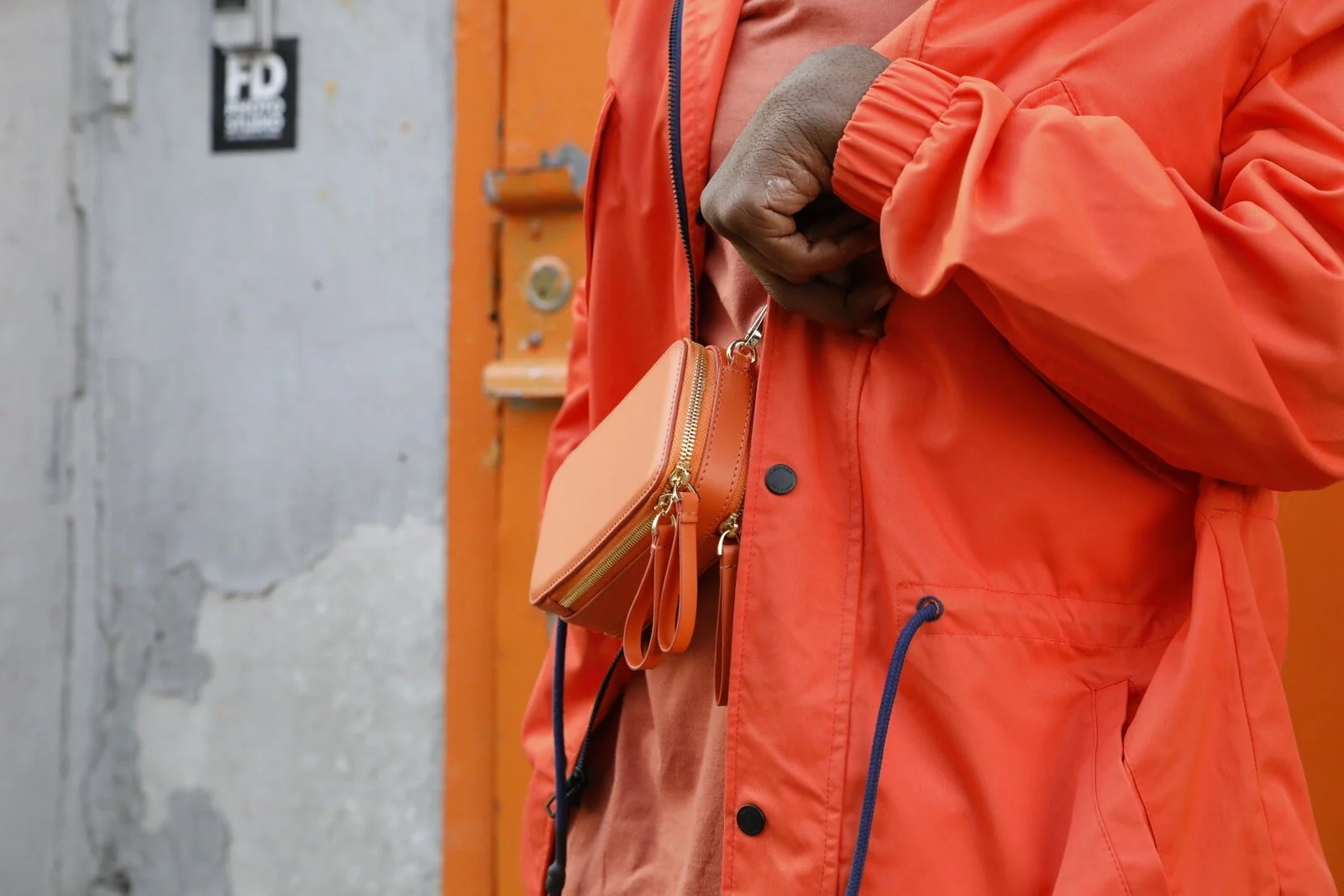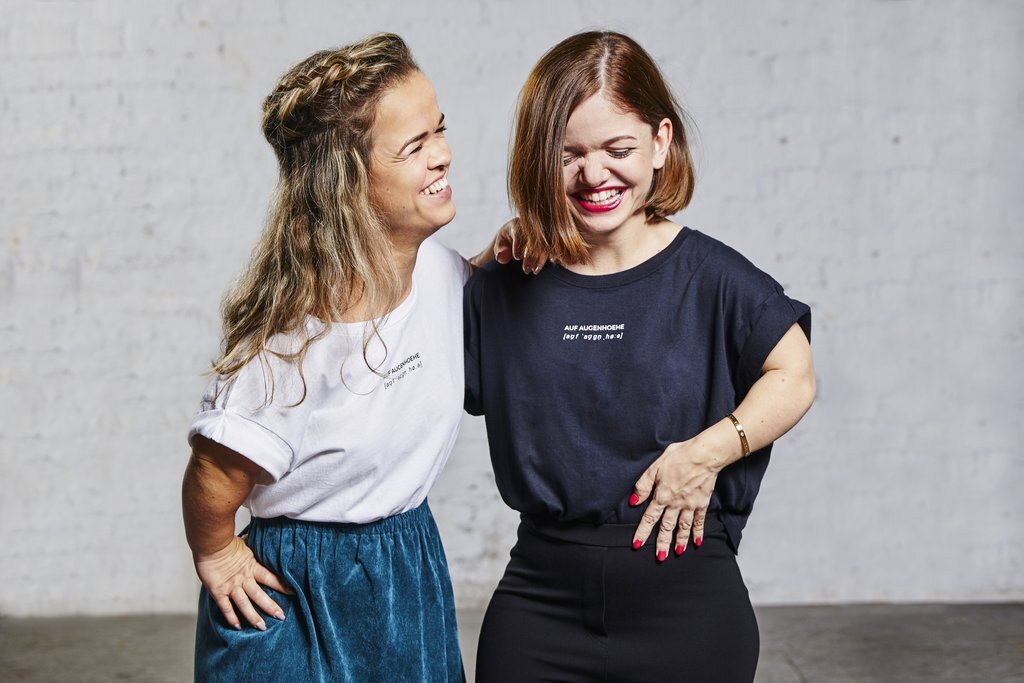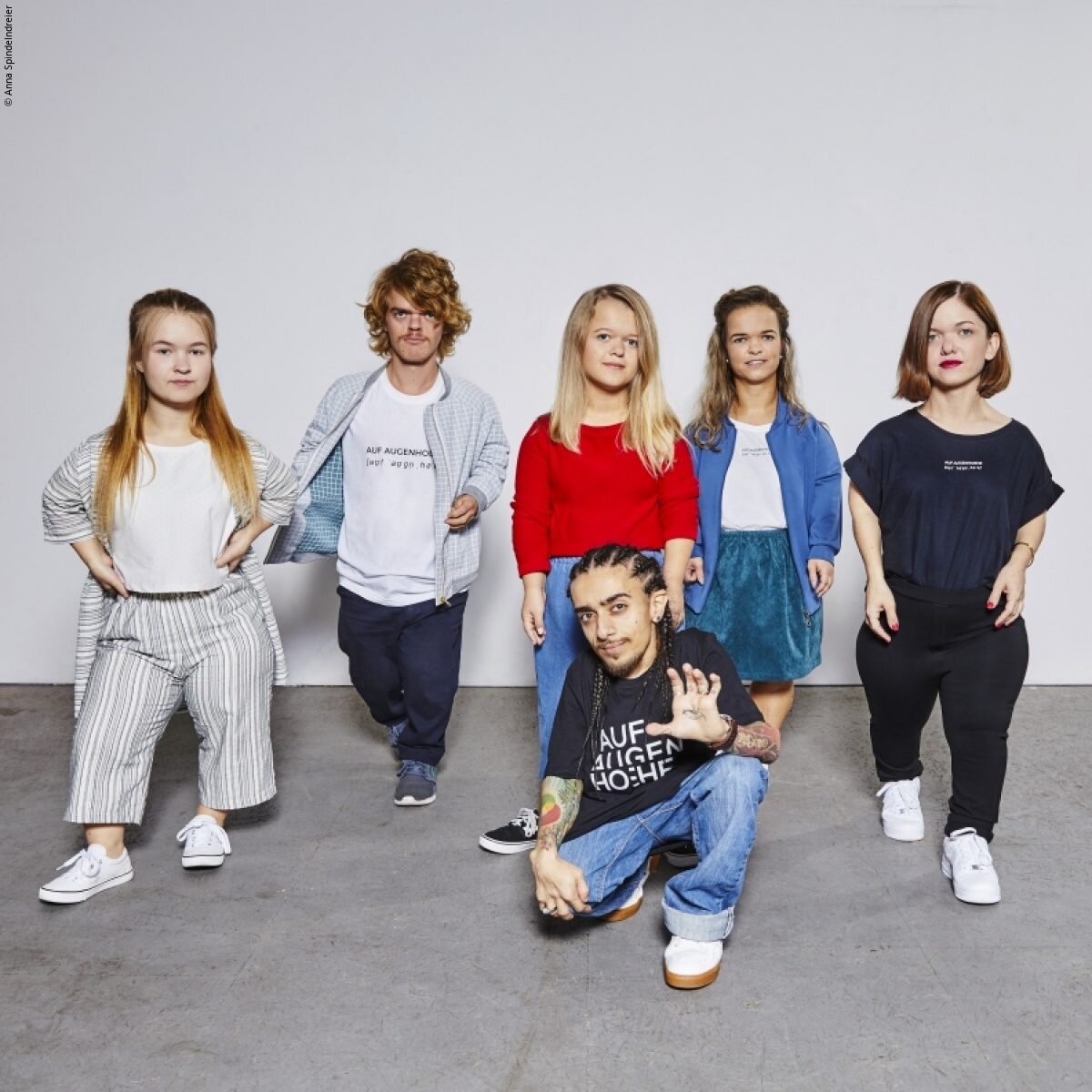Girl Talk: FFORA And The Future Of The Fashion Industry - Part II
Part II of my incredible conversation with fashion designer Lucy Jones is here! We discuss her new ad with Microsoft (yes, Microsoft!), the present and future state of the fashion industry, our short term and long term goals, and much more. Again, I cannot thank Lucy enough for taking the time to sit down and talk with me. She is truly a wonderful designer and human being from the inside out.
JILLIAN: In the past, and even now because society is still evolving in regards to adaptive fashion, how do you respond to doubters?
LUCY: I’m one of those people that will focus on one negative. It’s just in my nature, it comes in the territory of running a business and being responsible for something.
Sometimes it keeps me up at night, and the pressure can be overwhelming, it can be isolating and lonely and I do really care. Should I be doing this? Do I deserve to be here? But what happens to the doubters? You prove them wrong. You show them, or you can ignore them. If they are fundamentally so off-base, don’t waste your energy on them. If they do have valid criticism take that on board, learn from it. You have to constantly face yourself. That’s what you do when you get doubters- you either learn from it, if it’s critique, or rise to the challenge. It’s hard though, you have to find it within yourself. Keep dusting yourself off and surround yourself with people you love and who love you. I feel we have such a strong community that there are always people to hold.
JILLIAN: Okay... this is the big thing that I wanted to talk about. Everyone else is talking about it, I saw it all over social media. You just had an ad drop with Microsoft.
LUCY: Yeah.
JILLIAN: How did that happen?
LUCY: First off, I have to say the experience working with Microsoft was incredible from start to finish. The people are so genuine.
I think they use their platform to share stories of other people. We were grateful to have had the exposure because, as a company that’s so small, there has always been a challenge of people knowing we exist and discovering us. Like I said before, that could be the difference between success or failure for companies who are doing this- putting in those years of work, of climbing and pushing. You really do need exposure, you need that help. I think for only a very short 15 seconds, it showcased vibrancy. It then prompted other people to google it and come to us and talk to us and more importantly engage with others.
JILLIAN: Do you feel that the fashion industry is now truly becoming more inclusive towards people with disabilities?
LUCY: Yes. I truly do. I believe it because I can see it, though it is slow. There are more and more conversations happening, more brands are popping up. Most people, in this space, know each other already- it is a small crowd of people. For me, the recognition of disabled people- people who are disabled influencers or disability activists- means everything. And, saying that, there was that whole Sia situation that can’t be ignored. It was completely dreadful. To not even take the moment to learn, to respond to disabled people with that tone and aggression is proof that we might have a lot longer than we thought. But, do I think that the fashion industry is making change? I do.
JILLIAN: I agree with that. For me, in regards to the *Sia situation, it wasn’t so much about what she did (making a movie with an able-bodied actor playing a disabled character), it was about how she responded when she got called out for it. I think that proves this is a problem that needs to be addressed. Clearly, if the community is telling you you did something wrong, take it as a learning opportunity. I will say that Sia may be the exception because when you look at **Anne Hathaway and her movie Witches...she responded so well to that situation.
*After the release of the trailer for Sia’s new movie ‘Music’ in November, she faced backlash from the autism community over the casting of Maddie Ziegler as an autistic character. The community deemed the portrayal as “offensive” and “inaccurate”. When responding to an autistic actor who asserted that she and a number of other autistic actors would have been willing to play the part Sia responded, “Maybe you’re just a bad actor.”
**’The Witches’ remake received backlash from the disabled community over the association of people with limb differences and evil/monsters/disgust/fear. In response, Anne Hathaway, the star of the film, apologized, promised to do better, and promoted the Lucky Fin Project, a non-profit that raises awareness for people with limb differences.
LUCY: Exactly. People are not asking for humans to be perfect. People are asking for growth.
JILLIAN: I think combating ignorance is still the biggest struggle. But, I agree that it is definitely becoming more inclusive to people with disabilities.
What advice would you give to an aspiring designer, or even a current designer, who wants to design adaptive or accessible fashion?
LUCY: I would say don’t be afraid. I think everyone is afraid of getting things wrong. Being willing to engage is the first step and it can only evolve and get better from there.
JILLIAN: What are your short term and long term goals that you have for you and for FFORA?
LUCY: I mean, I’m constantly talking about this in my day-to-day life. With FFORA, I would love to expand. We recently worked with the Disability Empowher Network and, for me, the empowerment of organizations to provide opportunities for disabled women, is something that I’m personally passionate about. To have learned about Stephanie and Leah’s (Disability Empowher Network’s co-founders) organization is what I want to see more of!
The long term goal for FFORA... I would love to see FFORA really make an impact in people’s lives beyond the product. In addition, I also would like for many people to know of FFORA and to partner with brands. I would like to see more robust collaborations and more opportunities in general for disabled leaders and disabled people.
For me personally, I would like to stop worrying so much. I just have a constant internal battle- there are so many pressures. I’m a designer and a lot of the time I need to turn off and I need to be creative and I need to be alone just to think sometimes, to recharge. For me, I just wish I worried less about everything and then we’ll see what happens after that. If I worried less I would be a happier person, I would probably produce better work.
JILLIAN: Your work is amazing.
LUCY: Thank you Jillian! I only want to be part of change and using the platform to really create some real change.
JILLIAN: I say you’re doing it.
Where do you see the future of accessible and adaptive fashion?
LUCY: I think some brands are already doing it and don’t know they’re doing it. There is a lot of discovery. I would love for “adaptive fashion” to not be a term. I know it’s hard because then how would you distinguish or find options and I don’t know what the answer is. I just feel like there might be better words to describe what THIS is. To be honest, I’ve always had a bit of an issue with the word adaptive. I just don’t believe there has ever been another word. Is it accessible? But, I’ve always challenged even the word adaptive because, to me, adaptive means modified from originality: designing something, that’s the origin, and then it needs to be adapted later on. What we’re seeing with brands like Auf Augenhoehe, I don’t think they’re adaptive. They have a very specific design approach. I would say that what we do at FFORA is not adaptive because we are designing a specific thing from the beginning. We’re not adapting it later on. Adaptive cars make sense because that’s a car that’s been adapted. It’s like this afterthought- disability has come at the end or the person you didn’t think of at the beginning is now at the end, therefore, it’s adaptive. Anyhow, I’ve always wondered about the termIt’s really interesting, but I think in the future there will be more language, more knowledge, more critique. It will look very different because we will be defining it differently. All I know for sure is that it is going to be bigger and different.
JILLIAN: I can’t wait. Bring it on 2021.
LUCY: I know. It’s going to be wild that’s for sure. The net will be cast wide.
JILLIAN: I agree.
Final question: Are there any questions that you feel I haven’t asked that you would like to answer?
LUCY: I actually have a question for you. What do you want from fashion? What do you want to see?
JILLIAN: I, and the little people community, want to be seen- not just as a challenge that is just too big to take on. Everything seems to be happening, in regards to the fashion industry becoming more inclusive towards little people, overseas. There (overseas), there is no one saying “We can’t”. Sinéad Burke is clearly demonstrating that little people can and should be a part of the fashion conversation. Auf Augenhoehe has developed a size chart that people thought was impossible. They are designing for little people and, like you said, they are not changing the design. They are just designing clothes that fit little people.
LUCY: How does that make you feel? Because this is a question I ask people who work with us and the FFORA team. What does it mean to see something that’s designed for you?
JILLIAN: Right now it feels very special because it’s not normal. I just want it to be normal- that I can walk into a store and buy a pair of jeans and feel confident that they are going to fit or to see a mannequin that’s my size instead of trying to visualize how an outfit would look on my body. I don’t want it to be a special thing anymore. I want it to be the norm. I had a similar conversation with someone a few days ago and I said that sometimes, when it comes to the inclusion of people with disabilities in different industries, including fashion, once they have their “one” they say “That’s it. We’re inclusive now. We have someone. We have our person.”
LUCY: “We’ve checked that box.”
JILLIAN: Exactly.
LUCY: But yet the more voices and the more people you hear, the more opinions you have, the better it gets. One person’s experience isn’t that one experience for everyone. I agree with you. That’s why I say adaptive isn’t the correct term because that’s implying one very specific thing and it’s a lot of different things. That’s why I’m excited as well because I believe it is going to constantly evolve.
JILLIAN: I think so too. I was thinking about Project Runway, which I’m obsessed with, and in their most recent season they challenged their designers to design for Olympians and Paralympians. But, they did it when they had a smaller pool of designers and only three were disabled. None of them had the typical model body that we are familiar with, but three were disabled. And I was like, “Okay, that’s great. You are challenging only three designers. Why can’t you challenge all of your designers?” Challenge may not be the correct word but, as the saying goes, “If it doesn’t challenge you, it doesn’t change you.” Showcase different sizes and different disabilities. If you’re going to do it, then do it. Don’t do it so you’re checking a box, don’t do it so you can say “Look how inclusive we’re being”. Do it.
LUCY: Conversations like this are needed more.
JILLIAN: Yes, absolutely.
LUCY: The more conversations that happen like this, the better it is. I agree with you: I think seeing yourself reflected in products that you want to use is an amazing feeling that, as a, non disabled person, is a privilege that I’ve had all my life. More people have to and must experience those feelings.
JILLIAN: One day.
LUCY: I would love to see a robust effort to create one larger community.
JILLIAN: As would I.













